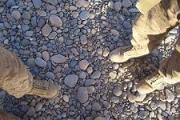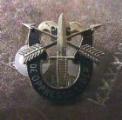Hat tip to Circling the Lion's Den (a UK-based blogsite on matters Afghan) for pointing at Steve Coll's column in the New Yorker:http://www.newyorker.com/online/blog...-estimate.html
Circling the Lion's Den summary, edited for brevity:From:http://circlingthelionsden.blogspot....elligence.htmlExcellent, well-informed article by Steve Coll.. on the latest US National Intelligence Estimate on the war in Afghanistan....
The new draft..is said to be gloomier than the typical public statements made by US military commanders in Afghanistan.
It is said to raise doubts about the authenticity and durability of alleged gains in Kandahar and Helmand provinces since the Obama troop surge and also suggests that the next generation of political leaders after Karzai will be more corrupt.
It also questions the success of the programme to train and equip the Afghan military and police forces, noting that the projected cost of running a force of 350,000 after 2014 will be $8-10 billion a year, more than the US is willing or able to pay.
There are some interesting parts to the Coll article, but this part struck me and partly as SWC have tried to consider what next?
In the Afghan war, there are now two plausible choices. President Obama has committed to one of them: a gradual drawdown by 2014, accepting three more years of sacrifice in blood and expenditure (on a declining slope, it is hoped), in the expectation that Afghan forces can be built up to hold off the Taliban, protect civilians, and prevent civil war, which would almost certainly spill into Pakistan, making things there even worse. Another choice would be to declare that the 2014 project is unaffordable and beyond hope, and to bring troops home faster and sooner. Both choices involve risks.













 ). However, Washington is a leaky sieve, and thanks to a host of "anonymous senior officials" who can leak without retribution, we basically know the NIE's broad conclusions. You can read two summaries and analysis for yourself
). However, Washington is a leaky sieve, and thanks to a host of "anonymous senior officials" who can leak without retribution, we basically know the NIE's broad conclusions. You can read two summaries and analysis for yourself 

Bookmarks